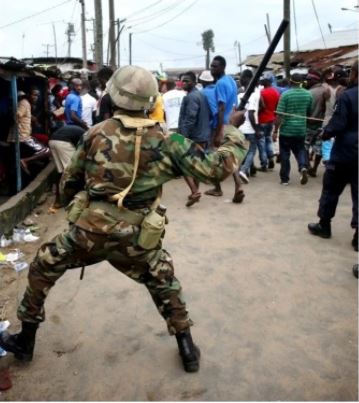General explanation
The African Court on Human and Peoples’ Rights (the Court) is a continental court established by African countries to ensure the protection of human and peoples’ rights in Africa. It complements and reinforces the functions of the African Commission on Human and Peoples’ Rights.
The African Court came into existence by virtue of Article 1 of the Protocol to the African Charter on Human and Peoples’ Rights on the Establishment of an African Court on Human and Peoples’ Rights (the Protocol).
In August 2007, the African Court moved its seat which was formerly in Addis Ababa, Ethiopia to Arusha, the United Republic of Tanzania as of November 2006.
The African Court is composed of eleven learned judges of high moral standing and they are elected by Member States of the African Union from among African jurists of proven integrity and of recognized practical, judicial or academic competence and experience in the field of human rights. A Quorum of 7 judges is to preside over cases brought before the Court. They serve in their individual capacity and are elected for either a six year or four year term renewable but once.
Mandate
The African Court on Human and Peoples’ Rights was establish to complement, the functions of the African Commission on Human and Peoples’ Rights, since the latter only makes recommendations which are not binding, the African Court on the other hand makes binding decisions and this is meant stop States impunity and encourage compliances with Charter provisions.
Jurisdiction
Contentious Jurisdiction of the Court
Under Article 3 of the Protocol, the Court has jurisdiction to deal with all cases and disputes submitted to it regarding the interpretation and application of the Charter, the Protocol and any other relevant human rights instrument ratified by the concerned States.
Advisory Jurisdiction of the Court
Under Article 4 of the Protocol, the Court may, at the request of a Member State of the African Union, any of the organs of the African Union, or any African organization recognized by the African Union, provide an opinion on any legal matter relating to the Charter or any other relevant human rights instruments, provided that the subject matter of the opinion is not related to a matter being examined by the Commission.
The court only has jurisdiction over States that have made a declaration under Article 34(6) of the protocol accepting the jurisdiction of the court. The Court has the capacity to pass binding decisions against States found in violation of human rights guaranteed in the African Charter. In this regard, State parties will be required not only to “undertake to comply with the judgment in any case to which they are party”, but also to “guarantee its execution”.
How to access the African Court
According to the Protocol (Article 5) and the Rules (Rule 33), the Court may receive complaints and/or applications submitted to it either by the African Commission on Human and Peoples’ Rights or State parties to the Protocol or African Intergovernmental Organizations.
Non-Governmental Organizations with observer status before the African Commission on Human and Peoples’ Rights and individuals from States which have made a Declaration accepting the jurisdiction of the Court can also bring cases directly before the Court. As of October 2012, only five countries had made such a Declaration. These countries are Burkina Faso, Ghana, Malawi, Mali, and Tanzania.
The decisions of the court will be binding and the AU Council of Ministers is to monitor the implementation of the decision, thus putting a political element into enforcement.
How IHRDA engages with the African Court on Human and Peoples’ Rights
IHRDA is part of the coalition for an effective African Court on Human and Peoples’ Rights network. Within that network IHRDA works to engage National Human Rights Institutions to urge State Parties to implement decisions on communications, participate in State Party reporting, lobbying for ratification of the Protocol Establishing the African Court of Human and Peoples’ Rights and the declaration required under article 34(6) of the Protocol, as well as the Protocol on the Statue of the African Court of Justice and Human Rights.



